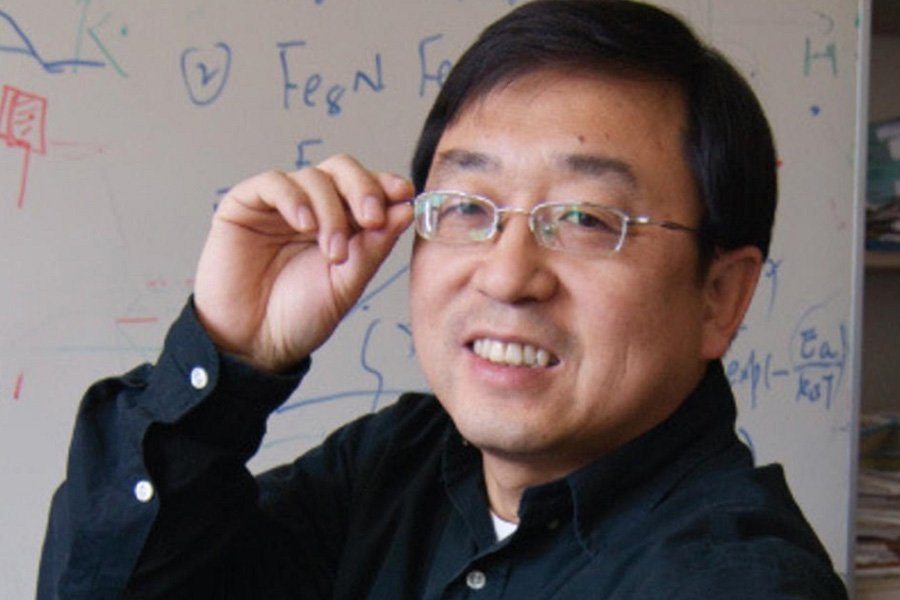Professor Jian-Ping Wang to be inducted into the National Academy of Inventors

Wang holds 65 patents for materials and devices used in information storage, computing, and biomedical sensing
MINNEAPOLIS / ST. PAUL (01/03/2022) — The University of Minnesota College of Science and Engineering announced that Distinguished McKnight University Professor Jian-Ping Wang has been named a National Academy of Inventors (NAI) Fellow and will be inducted into the NAI at the academy’s annual meeting in June 2022.
Wang holds the Robert Hartmann Chair in Electrical and Computer Engineering and serves as director of the University’s Center for Spintronic Materials for Advanced Information Technologies (SMART) that has been supported by SRC and its nCORE program.
Election to NAI Fellow status is the highest professional distinction accorded to academic inventors who have who have demonstrated a spirit of innovation in creating or facilitating outstanding inventions that have made a tangible impact on the quality of life, economic development, and the welfare of society.
Wang is a world-renowned researcher in the field of novel magnetic materials and spintronic devices for information storage, memory and computing, and biomedical sensing. Wang’s pioneering experimental demonstration on the exchange coupled composite (ECC) media has been used in hard disk drive (HDD) technology since 2008. HDD represents 80 percent of data storage for today’s data centers that are essential for our daily life. His work helped reduce the number of data centers by half, which has reduced the energy consumption worldwide of data centers by half.
Wang is also the inventor of novel magnetic tunnel junction (MTJ) structures and spin-orbit torque (SOT) materials and devices, both of which have been deployed and are being actively explored for magnetic memory and spintronic computing applications. His invention of perpendicular MTJ fixed-layer structures have been licensed to Intel Inc. and Micron Inc., among others, and are being used in STT-RAM (spin transfer torque random access memory) products, which has an estimated $2 billion market. He is also the inventor of Computational Random Access Memory (CRAM) for computing using memory cells, which has been validated through recently benchmarking effort to address energy-efficient memory-centric computing for artificial intelligent (AI) applications.
Wang also has co-founded three startup companies—Niron Magnetics Inc., Zepto Life Technology LLC, and Universal Magnetic Systems LLC. Wang’s invention of the rare-earth-free and environment-friendly iron nitride permanent magnet led to Minnesota-based startup company Niron Magnetics with 20 employees and a $40 million investment. Permanent magnets play an increasingly vital, hidden role in modern technologies. Common devices that we use daily, such as computers, appliances, and automobiles are powered by permanent-magnet motors that convert electricity to motion. Wang’s invention of magnetic biosensing has led to Minnesota-based startup company Zepto Life Technology to develop technology for early detection of diseases.
He holds 65 patents, and 39 of those patents have been licensed. He licensed patents to Micron Inc. and Intel Inc. through the Defense Advanced Research Projects Agency spin-transfer torque random access memory (DARPA STT-RAM) program, Seagate Technologies through the Center for Micromagnetics and Information Technologies (MINT) consortium, SRC companies of STARnet, JUMP and nCORE programs. He has published more than 300 peer-reviewed articles and seven book chapters.
“I am very grateful to be recognized and inducted into NAI, which holds the highest standards for academia inventors,” Wang said. “I really think we, as researchers and educators, could do more to help our society through creating new things. I would like to thank all my wonderful students and postdoctoral fellows working in my lab and my outstanding collaborators throughout the years."
Since coming to the University in 2002, Wang has helped graduate 34 Ph.D. students and worked with 12 post-doctoral researchers who now work in industries and academia throughout the U.S.
"Without them, many ‘wild’ ideas wouldn’t have panned out and been demonstrated for practice,” Wang added.
To date, those inducted into the NAI hold more than 48,000 issued U.S. patents, which have generated more than 13,000 licensed technologies and companies, and created more than one million jobs. In addition, more than $3 trillion in revenue has been generated based on NAI inductee discoveries.
This year’s 170 inductees hail from 116 research universities and governmental and non-profit research institutes worldwide. They collectively hold over 4,800 issued U.S. patents.
“The caliber of this year’s class of NAI Fellows is outstanding. Each of these individuals are highly-regarded in their respective fields,” said Dr. Paul R. Sanberg, FNAI, President of the NAI. “The breadth and scope of their discovery is truly staggering. I’m excited not only see their work continue, but also to see their knowledge influence a new era of science, technology, and innovation worldwide.”
